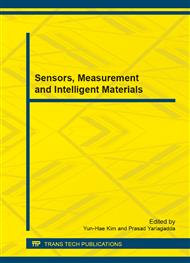p.1369
p.1373
p.1379
p.1385
p.1391
p.1395
p.1402
p.1406
p.1412
An Intelligent Job Scheduling System in Cloud Computing
Abstract:
Cloud computing is a new computing and business paradigm with flexible and powerful computational architecture to offer universal services to users via Internet. The performance of the scheduling system influences the cost benefit of this computing paradigm. Thus, jobs should be scheduled efficiently to reduce the execution cost and time. In this paper, we present an intelligent scheduling system, which considers both the requirements of different service requests and the circumstances of the computing infrastructure which consists of various resource, then, the main components of the system are introduced in detail, at last, the conclusions are drawn and the further research directions of the scheduling systems are pointed out.
Info:
Periodical:
Pages:
1391-1394
Citation:
Online since:
February 2013
Authors:
Price:
Сopyright:
© 2013 Trans Tech Publications Ltd. All Rights Reserved
Share:
Citation:


